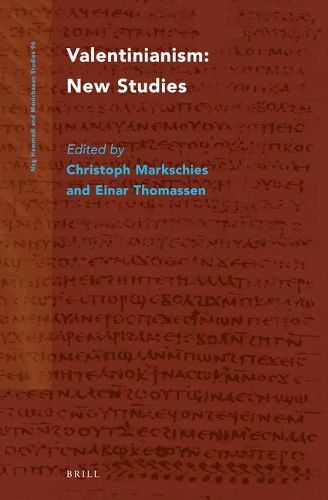Readings Newsletter
Become a Readings Member to make your shopping experience even easier.
Sign in or sign up for free!
You’re not far away from qualifying for FREE standard shipping within Australia
You’ve qualified for FREE standard shipping within Australia
The cart is loading…






Since Antiquity, the movement associated with Valentinus has been regarded as the most typical and the most representative exponent of Gnosticism. Recent research has led to a new appraisal of Valentinianism as a distinct form of early Christianity that deserves to be understood in its own right. Valentinianism served as a catalyst for the development of mainstream Christian doctrine, exegesis and ritual. Its connections to contemporary forms of Platonism are being progressively uncovered. The present volume, edited by Christoph Markschies and Einar Thomassen, shows the current state of research on Valentinianism, offering contributions by leading experts about the history of the movement, contested aspects of Valentinian doctrine, and the use and interpretation of the New Testament by the Valentinians.
$9.00 standard shipping within Australia
FREE standard shipping within Australia for orders over $100.00
Express & International shipping calculated at checkout
Since Antiquity, the movement associated with Valentinus has been regarded as the most typical and the most representative exponent of Gnosticism. Recent research has led to a new appraisal of Valentinianism as a distinct form of early Christianity that deserves to be understood in its own right. Valentinianism served as a catalyst for the development of mainstream Christian doctrine, exegesis and ritual. Its connections to contemporary forms of Platonism are being progressively uncovered. The present volume, edited by Christoph Markschies and Einar Thomassen, shows the current state of research on Valentinianism, offering contributions by leading experts about the history of the movement, contested aspects of Valentinian doctrine, and the use and interpretation of the New Testament by the Valentinians.